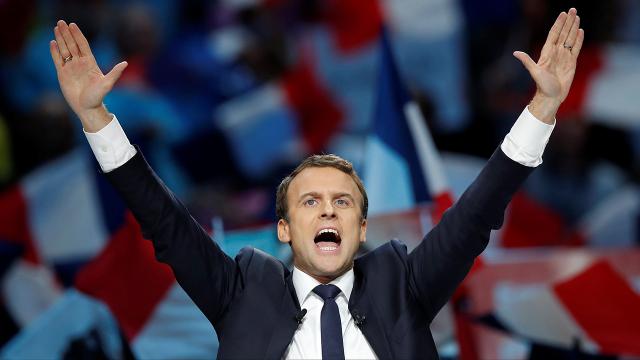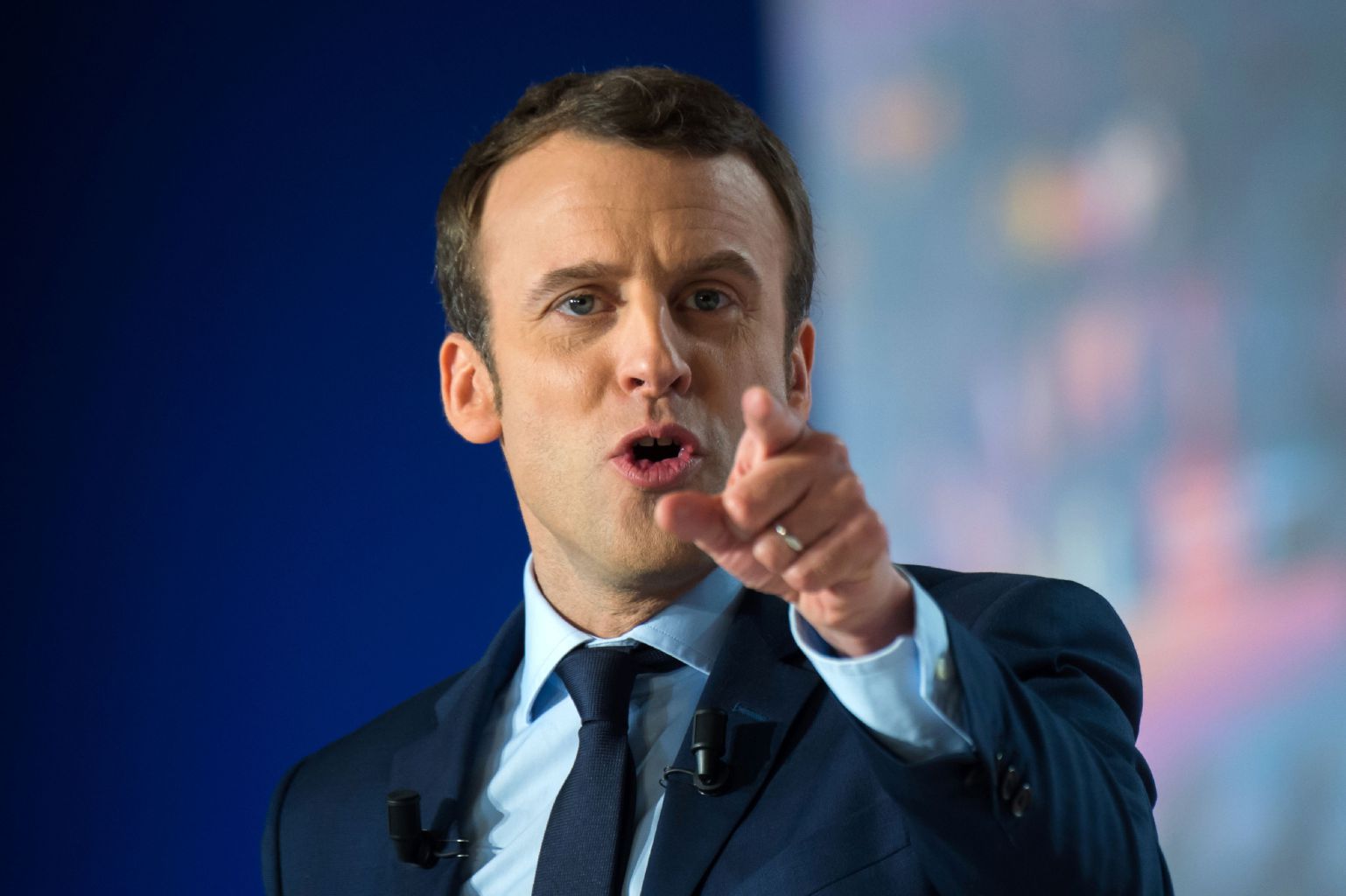
BERLIN – French President Emmanuel Macron doubled down on calls for greater European fiscal and political integration during his first address to the European Parliament in Strasbourg last week.
But as President Macron positions himself as Europe's most vehement proponent of unity and touts his ambitious reform agenda as necessary for the future of the continent, he faces resistance from rightwing, nationalist governments in the bloc seeking to fray Europe.
"All over Europe, even in Germany, the trend is toward the populists," said Tyson Barker, a program director with Germany's Aspen Institute, a political think tank in Berlin. "It's not as happy a story as political Paris would make it out to be."
Since assuming the presidency in May of last year, Macron has set himself in stark contrast to nationalist forces gaining ground in Austria, Germany, Hungary, Italy and Poland. "In these difficult times, the European democracy is our best chance," Macron told European leaders last Tuesday.
"We see authoritarians all around us, and the answer is not authoritarian democracy, but the authority of democracy."
Macron's defeat of rightwing populist Marine Le Pen in the nation's presidential contest last year set the stage for a return to eurocentrism in the region’s third-largest economy after a bitter period of insecurity following the 2016 Brexit referendum, said E.U. leaders.
"I want to express my emotion and friendship, when I hear the French president expressing himself in the way that he has," European Commission President Jean-Claude Juncker told the European Parliament after Macron's speech. "The real France is back."
Macron's reforms have focused on modernizing Europe while striking a balance between more financial and political integration, and preserving national sovereignty, according to Mark Leonard with the European Council on Foreign Relations. It's an ambitious mission to "reconcile the irreconcilable," Leonard recently wrote in an analysis of Macron's policies.
Macron plans to shore up Europe's economic union by establishing a common finance minister for the bloc and instituting a pan-European budget. He's also proposed new discussions of European policies on migration, security, digitization and defense, including the creation of a European Defense Force.
But he also likened the ideological divisions between liberal and nationalist government to a "civil war… where there is an increasing fascination with illiberalism". He exhorted his audience to reject rightwing demagoguery.
"I don't want to belong to a generation of sleepwalkers that has forgotten its own past," Macron said, alluding to the continent's turbulent history with authoritarianism.
But as France's president waxes poetic about adhering to the traditional ethos of European democracy, an "ethno-nationalist Europe" has emerged elsewhere that "sees Europe as Christian nations that are ethnically homogenous," said Barker.
Hungarian Prime Minister Viktor Orban, for example, often attacks non-Christian migrants and stokes fear among the electorate of a loss of national culture.
It's a strategy that secured him another absolute majority in the nation's parliamentary elections earlier this month – a powerful mandate he's used in the past to silence dissidents and pass illiberal constitutional reforms.
"Countries that don't stop immigration will be lost," Orban told crowds at a rally last month outside the Hungarian parliament. "Africa wants to kick down our door, and Brussels is not defending us – Europe is under invasion already, and they are watching with their hands in the air."
Rightwing movements in Poland and Austria have seen success using similar tactics as well. While they support Macron's proposals to bolster the continent's outer borders, they reject his push for all member states to meet refugee quotas.
Macron called out the issue on Tuesday by saying that "there seems to be a certain European civil war: national selfishness and negativity seems to take precedence over what brings us together."
"This is a democracy that respects individual minority fundamental rights, which used to be called liberal democracy," he added. "The deadly tendency which might lead our continent to the abyss, nationalism, giving up of freedom: I reject the idea that European democracy is condemned to impotence."
But it may well be that Macron's reforms are more impotent than he's led himself to believe. The staying power of nationalist movements on the continent seem poised to continue to block Macron's progress on many reforms, while the partner whom France most relies on to kickstart reforms, Germany, is having cold feet as well, said Barker.
Chancellor Angela Merkel's government has made public overtures to embrace Macron's reforms, but it took six months after the nation's difficult September elections to form a government, mostly due to the strength of a rightwing party, Alternative for Deutschland, which won an unprecedented 13 percent of the vote.
As such, Berlin is more inclined to opt for the status quo as opposed to striking a visionary approach to European reforms, said Barker. "There's a lot of rhetorical lip service to the Franco-German love affair, and there's a lot of outreach on the part of France, but it's an unrequited love," he said.
It's a reality Berlin already realizes.
"These ideas are bringing new momentum into the European project that we need," German Finance Minister Olaf Scholz told the daily Frankfurter Allgemeine Sonntagszeitung when asked about Macron's push for a European budget and finance minister. "But the French president also knows that not all of his ideas can be realized.”
In the end, without full-throated support from Germany, and with entrenched nationalist regimes in Central and Eastern Europe, Macron's ambitions may be reduced to hot air. "There aren't going to be any real, in-depth changes that I can see to the eurozone architecture," said Barker.














